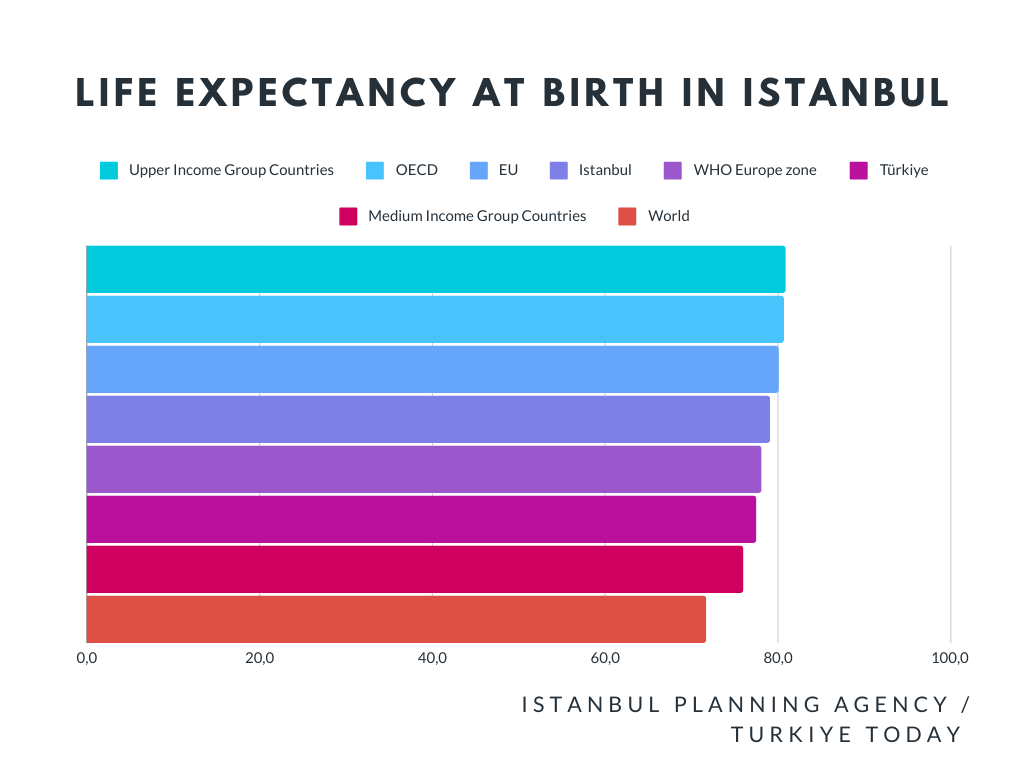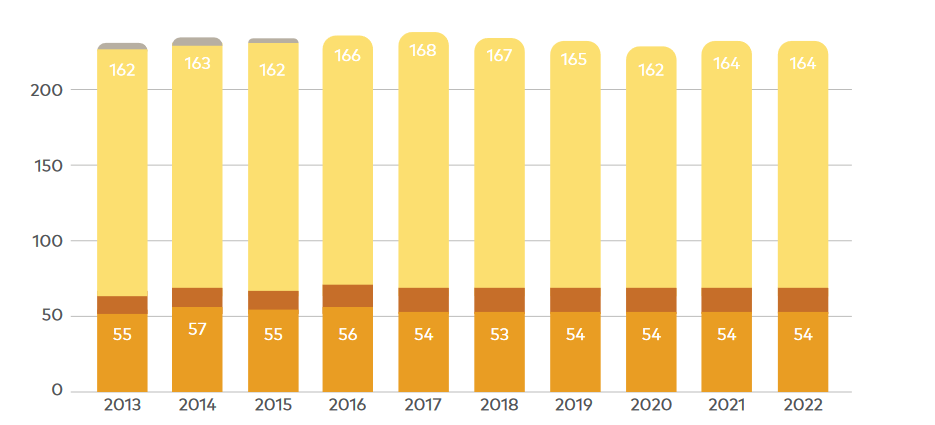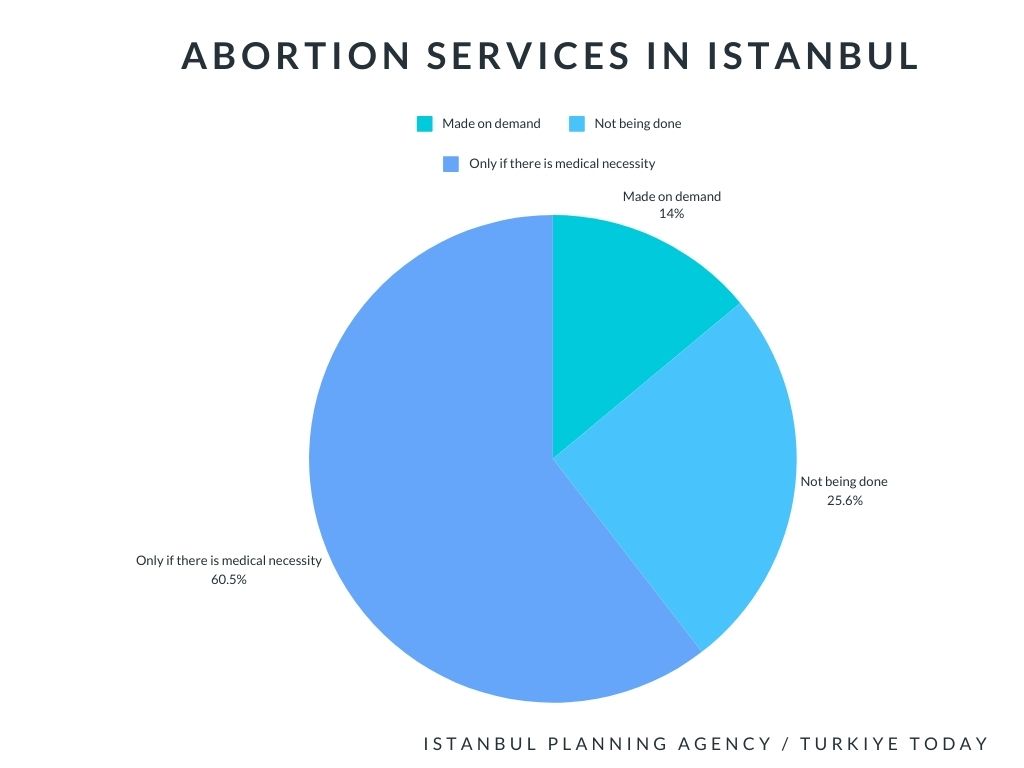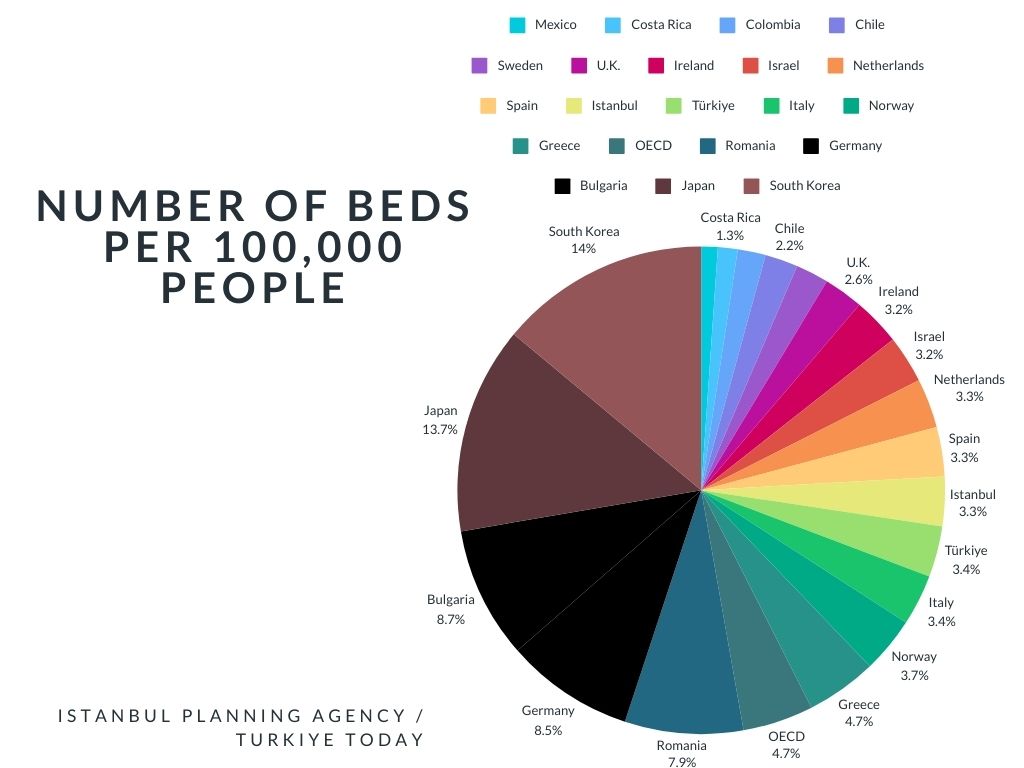
According to research by the Istanbul Planning Agency published during Türkiye Public Health Week (3-9 September), access to family medicine in Istanbul is becoming increasingly difficult.
Nationwide, there are 3,072 people per family medical unit, but in Istanbul, this number rises to 3,187, indicating a shortage of healthcare providers in the city. The private hospital count exceeds public hospitals by threefold, leading many residents to rely on private healthcare services.
Let's take a look at the data for Istanbul.
According to the Istanbul Planning Agency's recent data, the average life expectancy in Istanbul is 79.1 years, which is above both global and Turkish averages but below OECD and EU averages.

In Türkiye, the average population per family medical unit is 3,072, but in Istanbul, this figure rises to 3,187, reflecting a shortage of family health centers and family physicians.
The number of private hospitals in Istanbul exceeds public hospitals by more than three times, forcing many residents to seek private healthcare. The total number of doctors per 100,000 people in Istanbul (284) is above the Turkish average (228) but remains below the OECD average of 372.
According to the Turkish Medical Association (TTB), applications for "Good Standing Certificates," a requirement for working abroad, increased from 2,685 in 2022 to 3,025 in 2023.
A key indicator of healthcare capacity, hospital bed availability, shows that Istanbul has 30 beds per 100,000 people, which is below both the OECD average (43) and the Turkish average (31).

A 2016 study found that only six hospitals in Istanbul offer elective abortion services, with 11 hospitals refusing the service altogether and 26 providing it only for medical emergencies.
Millions of women in Istanbul face difficulties accessing sexual health services. In response, the Istanbul Metropolitan Municipality (IBB) launched a free HPV vaccination program this year for individuals aged 9-26, with vaccines administered at Sehzadebasi and Darulaceze Medical Centers. The IBB also offers free breast cancer screening services as part of its women’s health initiatives.

Obesity is an increasingly significant public health issue in Istanbul. While the national obesity rate in Türkiye is 20.2%, Istanbul’s rate is notably higher at 30.1%.
Regular physical activity is also a concern, with the three-year average for physical activity participation in the city at 22.7%.
The number of people using sports facilities, gyms, and outdoor activity centers in Istanbul has increased over time. In 2023 alone, 9,608,002 individuals utilized sports facilities in the city. Although COVID-19 pandemic caused a drop in facility usage in 2020 and 2021, records were broken in 2022 and 2023, with over 18 million visits. Last year, 840,838 Istanbul residents made over 10 million visits to IBB facilities, equating to an average of 12 visits per person per year.
Department
2019
2020
2021
2022
2023
Number of Use
Number of Use
Number of Use
Facilities
6.616.482
2.123.116
2.497.365
8.338.703
9.608.002
Sports Centers
-
-
37.371
277.069
444.401
Outdoor Activities
16.642
37.109
184.765
213.645
187.478
Sports schools
-
-
526.399
2.019.359
1.887.821
OSS
-
-
-
512.119
515.563
In Total
6.663.124
2.160.225
3.245.900
9.341.536
10.755.444
In Istanbul alone, 9,608,002 people used sports facilities in 2023. (via IPP)
Since October 2019, the IBB has delivered 32,611,106 liters of milk to 277,183 children in Istanbul to improve their access to healthy food. In the past year alone, 138,440 children received 6,477,880 liters of milk.
From October 2019 to July 2024, the IBB provided 1,272,611 food packages to families, with 100,000 distributed in the last year.

Over the past year, 15,909 citizens benefited from the IBB's home healthcare services, which cater to the medical, care, and rehabilitation needs of patients and their families. Additionally, 2,098 elderly citizens sought assistance through the Solution Center (Alo 153) and the Elderly Consultation Line as of May 2023.
The IBB also offers patient transportation services via ambulance, addressing various needs, such as emergency illness, injuries, and inter-hospital transfers.
The IBB’s Psychological Counseling Centers (PDM) served 27,151 citizens in the past year, conducting a total of 95,975 sessions. The PDM provides services to individuals aged 3-65.

The IBB established five Social Cohesion Support Centers (SUDEM) to offer support for individuals dealing with substance, alcohol, and screen addiction. Over the past year, 2,049 Istanbul residents benefited from these services.